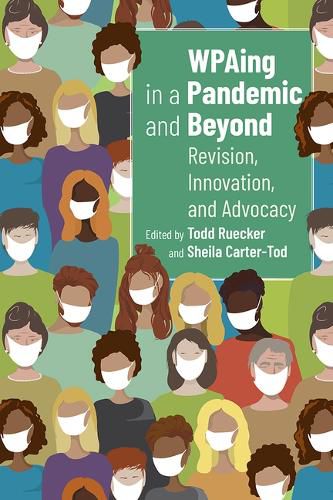Readings Newsletter
Become a Readings Member to make your shopping experience even easier.
Sign in or sign up for free!
You’re not far away from qualifying for FREE standard shipping within Australia
You’ve qualified for FREE standard shipping within Australia
The cart is loading…






Writing program administrators have a long history of advocating for their students, fellow faculty, and programs. This advocacy includes defending their work against other entities that seek to dictate the work, challenging institutional policies that define student success in a narrow way or create untenable conditions for writing faculty workloads, and making antiracism a central part of writing programs. The COVID-19 pandemic undoubtedly created a variety of additional challenges for those working in education at all levels. WPAs suddenly had to navigate new public health mandates alongside student and instructor fears as well as pressures by administrations and publics to teach in person. The chapters in this collection include a variety of voices who have been involved in writing program administration in recent years to reflect on the work done in this moment of crisis. Through both short vignettes and longer chapters, this book explores the complicated interactions between WPA work and navigating times of crisis to provide insights for moving forward. Authors explore a variety of topics including professional development, curricular change, advocating in the face of intransigent administrations and others, caring for students, and taking time for self-care. Pointing to specific actions for continued advocacy, WPAing in a Pandemic and Beyond will be of great interest to WPAs and writing studies scholars.
$9.00 standard shipping within Australia
FREE standard shipping within Australia for orders over $100.00
Express & International shipping calculated at checkout
Writing program administrators have a long history of advocating for their students, fellow faculty, and programs. This advocacy includes defending their work against other entities that seek to dictate the work, challenging institutional policies that define student success in a narrow way or create untenable conditions for writing faculty workloads, and making antiracism a central part of writing programs. The COVID-19 pandemic undoubtedly created a variety of additional challenges for those working in education at all levels. WPAs suddenly had to navigate new public health mandates alongside student and instructor fears as well as pressures by administrations and publics to teach in person. The chapters in this collection include a variety of voices who have been involved in writing program administration in recent years to reflect on the work done in this moment of crisis. Through both short vignettes and longer chapters, this book explores the complicated interactions between WPA work and navigating times of crisis to provide insights for moving forward. Authors explore a variety of topics including professional development, curricular change, advocating in the face of intransigent administrations and others, caring for students, and taking time for self-care. Pointing to specific actions for continued advocacy, WPAing in a Pandemic and Beyond will be of great interest to WPAs and writing studies scholars.